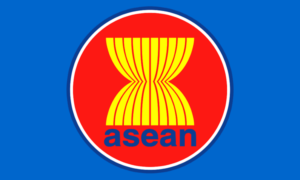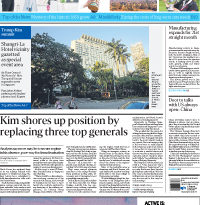INFORIAL: Indonesia spearheads efforts to digitalize payments, local currency adoption across ASEAN
Inforial (The Jakarta Post) Jakarta ● Mon, May 15, 2023
.



As the leaders of Southeast Asia’s countries met in the 42nd ASEAN Summit in the scenic Labuan Bajo in Indonesia’s East Nusa Tenggara, the host country and the current chairman of ASEAN was leading efforts to digitalize payments, as well as greater use of local currencies in the region.
Indonesia, the largest economy in Southeast Asia, as well as the region’s only member of the Group of 20, is among the fastest digital adopters in the world. The COVID pandemic accelerated the tectonic shift in consumer behavior, spurring the rise of online shopping and digital payments to even greater heights, resulting in mushrooming homegrown tech unicorns.
Bank Indonesia (BI) in January 2020, just before the novel coronavirus brought the world to a near-complete halt, made it mandatory for all payment providers to standardize their quick response (QR) under a single QR code called QRIS.
QRIS allows for interoperability among banks and e-wallet providers, making it a very affordable and efficient proposition for merchants. Gone are the days of having multiple QR codes or even the much costlier electric data capture (EDC) device to swipe debit or credit cards.
Thanks to low merchant fees for QRIS, the number of merchants using QRIS currently stands at about 22.4 million, more than triple the number of QR-adept merchants in Thailand, putting Indonesia at the top of Southeast Asia in terms of QR-based digital payments.
Cross-border QR
The success story of Indonesia has made it easier for other ASEAN countries to take note and adopt. The value of QR-based transactions in Indonesia has tripled each year since the standardized QRIS was made mandatory.
In 2022, QRIS transactions were valued at Rp 98.5 trillion against Rp 27.7 trillion a year earlier, and Rp 8.2 trillion in 2020, even with Indonesia’s challenging geographical condition of being an archipelago of more than 17,000 islands.
In November 2022, Indonesia, Malaysia, Singapore, the Philippines and Thailand signed an agreement to implement regional payment connectivity, with the adoption of QRIS by other countries. Currently, QRIS can already be used in Thailand, while piloting is underway in Malaysia, whereas Singapore is at initial engagement.
A pan-ASEAN standardized, interoperable QR code would boost transactions among regional travelers, benefiting both consumers and merchants, and providing a significant plank for the ASEAN Economic Community (AEC) in 2025.
Incorporating local currency settlements
Aside from having the required technology in place, the cross-border QR is also made possible thanks to local currency settlement (LCS) already underway in recent years. Indonesia, Malaysia, Singapore and Thailand have taken their bilateral swap arrangements a step further to curb exchange rate volatility and reduce contagion risks.
According to BI, LCS transactions jumped to US$ 2.5 billion in 2021 from $797 million in 2020. Last year, LCS made up around 4 percent of Indonesia’s total trade with Malaysia and 3 percent with Thailand.
During the ASEAN Finance Ministers and Central Banks’ Governors Meeting (AFMGM) in late March, the region’s finance authorities agreed to local currency transactions to help reduce ASEAN’s dependence on major currencies.
The exponential digitalization in ASEAN, Indonesia’s success story in QRIS, as well as the macro backdrop of volatility in major currencies such as the US dollar, suggest the region’s aspiration is within reach.
To catch the rapid rise of the ASEAN economy – the Asian Development Bank (ADB) projects ASEAN to expand by 4.7 percent this year, in contrast to advanced economies of just 0.4 percent – you need the right partner to navigate the intricacies of different regulations, norms and cultures among ASEAN countries.
HSBC’s longstanding presence in ASEAN
With over 130 years of presence in ASEAN, HSBC is well-placed to support your business growth and enable you to tap into new opportunities.
HSBC’s longstanding presence in the region allows it to amass vast knowledge not just on individual ASEAN markets, but understanding how to navigate the dynamics and connections between them.
As the world’s top trade bank, HSBC’s digital payment solutions enable companies to optimize their working capital with flexible transaction processing in local and foreign currencies, while reducing errors at the same time. Companies can directly tap into a suite of foreign currency services and save time on forex transactions. (ism)
 Ads by: Memento Maxima Digital Marketing
Ads by: Memento Maxima Digital Marketing
@[email protected]
SPACE RESERVE FOR ADVERTISTMENT


 Memento Maxima Digital Marketing
Memento Maxima Digital Marketing






